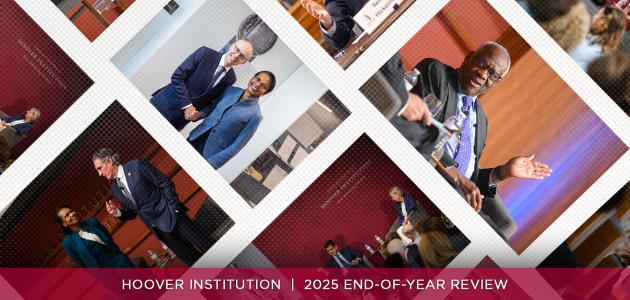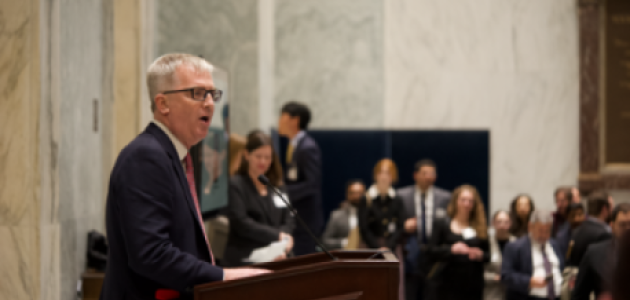A weekly digest of the latest news and research related to the work of the Technology, Economics, and Governance Working Group. Topics covered in the digest include cybersecurity, domestic regulation, innovation, international competition, social media disinformation, and the California exodus.
This week’s roundup includes coverage of declining US-Saudi relations, Russia’s ICBM test, Biden’s options to respond to a Russian cyber attack and how state and local organizations can prepare, and Elon Musk’s ambitions for Twitter. Additionally, Steve Blank recommends a new US civil-military innovation strategy, analysts argue the DoD is not doing enough to adopt AI capabilities, California introduces a new bill to protect employees from workplace surveillance, and Congress continues to consider the American Innovation and Choice Act, while Brookings outlines the benefits of a new digital regulatory agency to manage US tech policy.
Industrial Policy, International Competition, and Cooperation
How U.S.-Saudi Relations Reached the Breaking Point | The Wall Street Journal
President Biden’s hard stance against Saudi human rights abuses and his refusal to acknowledge Prince Mohammed bin Salman as the de facto leader of the Kingdom has led Saudi Arabia to distance itself from the United States—throwing the future of the partnership into question. As Russia prepared to invade Ukraine, Saudi leadership took no action to stabilize energy prices, reaffirmed their commitment to an oil agreement with Moscow, and rebuffed meetings with US officials. Riyadh has also strengthened its ties to China in recent years, becoming Beijing’s biggest supplier of oil.
Russia’s Missile Test Fuels U.S. Fears of an Isolated Putin | The New York Times
On Wednesday, Moscow test-launched a new nuclear-capable intercontinental ballistic missile, leading to renewed fears among top American officials that Putin’s tolerance for risk is growing as his country faces dire economic consequences following its invasion of Ukraine. Putin appears confident that the West’s attempts to isolate Russia will falter in the long term; however, he emphasized that Wednesday’s ICBM launch was a warning for Russia’s enemies. While Ukrainian forces have won the battle for Kyiv, fierce fighting continues in the east as the invaders concentrate their efforts on securing the Donbas region.
Domestic Regulation
Congress is Close to Cracking Down on Big Tech. But Powerful Obstacles Remain | TIME
The American Innovation and Choice Act (AICO), a bipartisan antitrust bill that would bar tech giants from favoring their own services over those of their competitors, still faces several challenges before it may be signed into law. The legislation has failed to secure the support of California representatives, including Speaker Nancy Pelosi and Minority Leader Kevin McCarthy, who do not wish to betray the interests of their constituents in Silicon Valley. Amazon and Google have not shied away from the fight, investing millions in a lobbying campaign to convince Congress that the bill would harm consumers. If AICO does not pass by the August recess, lawmakers are unlikely to have another chance to implement the bill—especially if midterm elections shake up the composition of Congress.
Time for a new digital regulatory authority | Brookings
Establishing a new digital regulatory agency could be the best way to standardize tech policy and ensure that urgent initiatives may enter into law without waiting on Congress. Not only would consumers benefit from increased protection, but the desire for more efficient oversight is also shared by several industry leaders, including Microsoft President Brad Smith and Meta CEO Mark Zuckerberg, who have endorsed the creation of a new federal institution tasked with setting boundaries for Big Tech. Tech companies have long struggled to abide by state-level regulations while navigating national guidelines. Consolidating these systems into one central bureaucracy would reduce uncertainty for business leaders while tightening existing laws.
Innovation
A Force for the Future: A High-Reward, Low-Risk Approach to AI Military Innovation | Foreign Affairs
China has the lead in AI military integration, and the US risks losing the race entirely if it does not reform its procurement process. Despite ample rhetoric from senior defense officials about the importance of emerging technology, military leaders have repeatedly rejected autonomous weapons systems out of worry that they would needlessly disrupt existing, successful programs that rely on older technology. Although surpassing Chinese capabilities remains a key goal, fast-tracking AI integration without conducting proper testing is not the solution. Instead, the US military should concentrate on expediting the invention and incubation phases of technology development while harnessing a common data infrastructure to conduct rigorous testing before implementation.
As Silicon Valley Tries to Enlist, The Pentagon Strangles Innovation | War on the Rocks
During the conflict in Ukraine, startups have demonstrated their ability to offer on-the-fly communications and surveillance services to local forces far cheaper than leading defense contractors. Stanford Professor Steve Blank warns that recent budget cuts to the highly successful Defense Innovation Unit, which awards DoD contracts to commercial companies, are facilitated by traditional defense suppliers hoping to slow their competition. America should revitalize its civil-military innovation relationship by creating more powerful financial incentives for private sector competition in the defense market.
Cyber
Biden’s options if Russia hacks U.S. infrastructure | Politico
Experts anticipate that Russia will soon conduct cyberattacks against critical US infrastructure in response to America’s support of Ukraine. If an attack occurs, Biden will face the challenge of taking retaliatory action that is both sufficiently punishing and unlikely to escalate the conflict. The President could choose to target the perpetrators of the hack directly by destroying offensive Russian cyber capabilities. Alternatively, he might respond with an American attack on Russian infrastructure, although this option comes with a high risk of further retaliation from Moscow.
Preparing for a Cyberattack Starts at the Local Level | RAND Corporation
As the risks of advanced cyber attacks increase, so does the imperative to adequately prepare local cyber response teams for crisis scenarios. Many city-level emergency managers are not equipped to effectively render aid during a major cyberattack, as it is difficult for these organizations to secure funding to plan for worst-case scenarios. The authors recommend that Federal agencies conduct outreach efforts to offer comprehensive guidance and support to local teams.
California
San Jose Legislator Seeks to Protect Silicon Valley Workers from Employer Spying | San Jose Inside
California Assembly Member Ash Kalra introduced the Workplace Technology Accountability Act this week to protect workers from workplace surveillance. Tracking and monitoring employees increased during the pandemic and Coworker.org observed a boom in workplace surveillance tech products in the past two years. Washington state, for example, found a connection between Amazon’s use of monitoring systems and employees’ physical injuries and fined the company. Kalra’s bill seeks more transparency from employers about surveillance systems and aims to establish a set of privacy standards to protect workers.
Freedom of Speech, Domestic Democracy, and Extremism
Elon Musk wants a free speech utopia. Technologists clap back. | The Washington Post
Experts warn that Elon Musk’s plan to purchase Twitter and transform it into a free speech-focused platform is ill-advised. Unlike the older days of the internet, eliminating safeguards is unlikely to lead to an environment where truthful ideas ultimately prevail over harmful speech. In today’s world, malicious actors can utilize powerful tools to manipulate online discourse and artificially boost dangerous messages. Removing moderation would likely amplify these voices instead of empowering authentic individuals.














